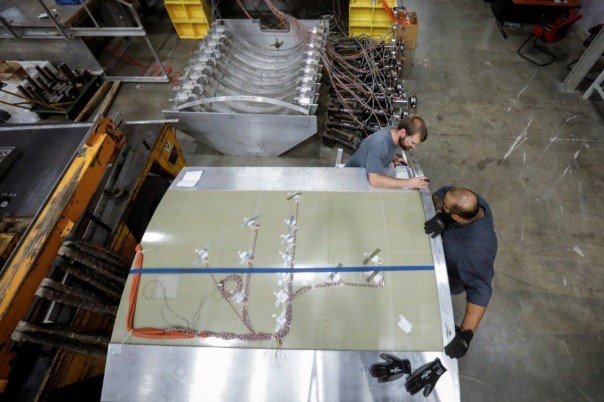NIAR opens six-week Composite Structural Engineering Technology course registration
Online course provides an overview of essential engineering practices and knowledge for certification of aircraft structures. The first module begins March 15th.

Photo Credit: National Institute for Aviation Research
Wichita State University’s National Institute for Aviation Research (NIAR) has officially opened registration for its six-week Composite Structural Engineering Technology (CSET) online course. The course is divided into two modules, CSET-A (March 15th-May 2nd) and CSET-B (May 10th-June 20th); together, they provide an overview of essential engineering practices and knowledge for certification of aircraft structures.
The modules are divided up into the following:
- CSET-A covers composite applications, materials and processing, fabrication development and design.
- CSET-B covers structural substantiation, manufacturing and maintenance and additional topics (flutter, crashworthiness, fire safety and lightning protection).
It should be noted that CSET-A is a prerequisite for CSET-B. Upon successfully meeting course requirements for CSET-A and CSET-B, attendees will receive a certificate of completion for each module.
This course is offered to:
- Professionals responsible for the engineering of composites
- Individuals who have a general background in composites and/or engineering technology
- Civil aviation regulatory authorities and industry designees who participate in the certification of composite structures.
About the course
Overall, this course covers the essential topics pertaining to composites engineering and the certification process. Its contents provide students with an awareness of the composites engineering process framework through course materials and practical applications through online discussions. Topics include engineering, manufacturing, maintenance and certification of composite materials associated with civil aircraft structures. The course content is in accordance with FAA AC 20-107B (Composite Aircraft Structure).
Developed through the collaboration of Wichita State University, industry subject matter experts and the Federal Aviation Administration (FAA), this course is taught online, includes all teaching materials, and features real-world discussions facilitated by those with subject matter expertise and FAA representatives. Depending on prior knowledge, experience, and level of student involvement, attendees typically spend six or more hours per week, reviewing materials, participating in online discussions, and testing their knowledge.
After finishing a one-week period of self-study of fundamental composites and successfully completing an examination in CSET-A, students proceed to more advanced topics through an online, interactive learning experience via Blackboard. Teaching methodology includes online discussions facilitated by subject matter experts, content in PowerPoint slides available for download and audio/visual aids. As an asynchronous learning process, the schedule is very flexible, with students determining their time schedule and participating at their convenience during each week of class.
Additional information
CSET-A and CSET-B will be offered again in Fall 2021 for those students desiring more schedule flexibility. It is currently planned for Sept. 20-Oct. 31, 2021. Both modules will be offered simultaneously.
Course fees are $800/module. Registration is limited to 22 individuals and will be accepted on a first-come first-serve basis.
Find registration details here.
Related Content
-
Welding is not bonding
Discussion of the issues in our understanding of thermoplastic composite welded structures and certification of the latest materials and welding technologies for future airframes.
-
Composites manufacturing for general aviation aircraft
General aviation, certified and experimental, has increasingly embraced composites over the decades, a path further driven by leveraged innovation in materials and processes and the evolving AAM market.
-
ASCEND program update: Designing next-gen, high-rate auto and aerospace composites
GKN Aerospace, McLaren Automotive and U.K.-based partners share goals and progress aiming at high-rate, Industry 4.0-enabled, sustainable materials and processes.
















